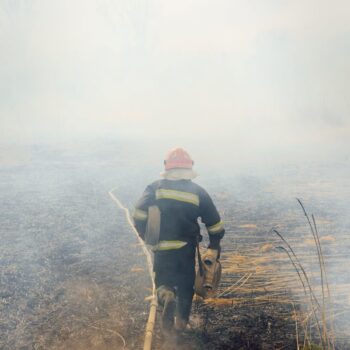- The White House released several reports highlighting the security threats that climate change poses and the steps several key agencies and departments are taking in response.
- The reports show the US recognises physical climate impacts and countries’ responses to the changing climate are fundamentally altering the geopolitical landscape. This brings geopolitical turmoil and complex systemic risks, like competition over resources, cross-border migration, and conflict and instability.
- Arriving just ahead of COP26, the analysis should serve as a call to action for increasing climate ambition. This would avoid unmanageable security consequences.
Story
The reports represent key deliverables from two of President Biden’s Executive Orders from the early months of his presidency, including Executive Order (EO) 14008 on Tackling the Climate Crisis at Home and Abroad to put the climate crisis at the center of U.S. foreign policy and national security and the February 29 Executive Order (EO) 14013 on Rebuilding and Enhancing Programs to Resettle Refugees and Planning for the Impact of Climate Change on Migration.
The documents include the first-ever National Intelligence Estimate (NIE) on Climate Change which points to increased geopolitical turmoil. This is due to the physical climate impacts and the energy transition to net zero economies. Similarly, the Department of Defense (DOD) has released its first report focusing on the strategic risks of climate change. Additionally, it explores how DOD will respond to those risks in its own strategic planning and in its engagement with partners.
In the batch of documents, the Government has also released a report recognizing the linkages between climate change and migration. Furthermore, the National Security Council is establishing a standing interagency working group on climate change and migration to coordinate U.S. Government efforts to mitigate and respond to migration resulting from the impacts of climate change.
These reports arrive at a crucial time, in the final period before the G20 and COP26 meetings, where the countries are discussing steps to strengthen resilience and scale up adaptation to climate impacts. Although, climate vulnerable countries are in desperate need of additional support, including finance to address climate risk, creating geopolitical turmoil. The reports show it is in the national interest of the U.S. and other major economies to provide more support for strengthening resilience abroad as this is also an investment in global stability.
Quotes on the geopolitical turmoil and security threats from climate change
Taylor Dimsdale, Program Leader, Risk and Resilience, said:
“The U.S. is back as a global leader on climate security. However, these reports also reveal the enormous gap between the climate security threat and the current response to climate risk. America cannot go it alone – it needs other nations’ help to secure its national climate security interests. That will require more investment in resilience in vulnerable countries to ensure stability and protect the US from aftershocks beyond its borders.”
-ENDS-
Note to Editors
- E3G is an independent climate change think tank accelerating the transition to a climate safe world. E3G specialises in climate diplomacy, climate risk, energy policy and climate finance. -> About
- For further enquiries email press@e3g.org or phone +44 (0)7783 787 863


